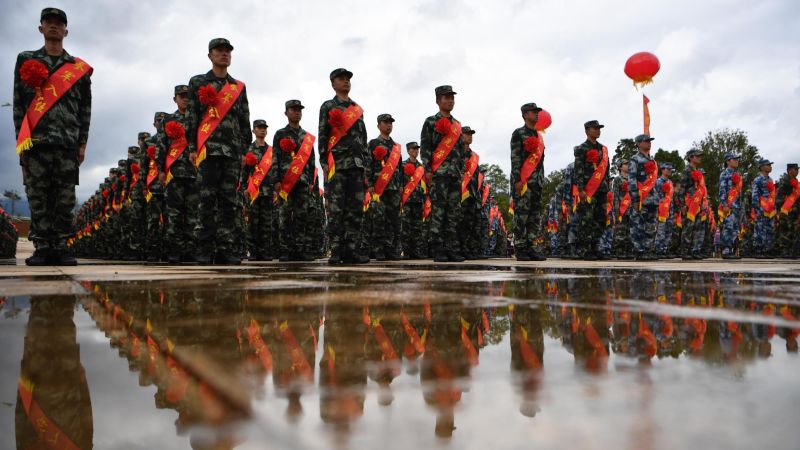
Preparing for war, social unrest or a new pandemic? Chinese companies are raising militias like it’s the 1970s
CNN
Chinese companies are doing something rarely seen since the 1970s: setting up their own volunteer armies. At least 16 major Chinese firms, including a privately-owned dairy giant, have established fighting forces over the past year, according to a CNN analysis of state media reports.
Chinese companies are doing something rarely seen since the 1970s: setting up their own volunteer armies. At least 16 major Chinese firms, including a privately-owned dairy giant, have established fighting forces over the past year, according to a CNN analysis of state media reports. These units, known as the People’s Armed Forces Departments, are composed of civilians who retain their regular jobs. They act as a reserve and auxiliary force for China’s military, the world’s largest, and are available for missions ranging from responding to natural disasters and helping maintain “social order” to providing support during wartime. The forces, which do not currently operate outside China, have more in common with America’s National Guard than its militia movement, which refers to private paramilitary organizations that usually have a right-wing political focus. The establishment of corporate brigades highlights Beijing’s growing concerns about potential conflict abroad as well as social unrest at home as the economy stumbles, analysts say. The revival is also seen as a response to the pandemic, and part of Chinese leader Xi Jinping’s efforts to tighten Communist Party control over society, including the corporate sector. “The return of corporate militias reflects Xi’s rising focus on the need to better integrate economic development with national security as the country faces a more difficult future of slower growth and rising geopolitical competition,” said Neil Thomas, a fellow for Chinese politics at Asia Society Policy Institute’s Center for China Analysis.













